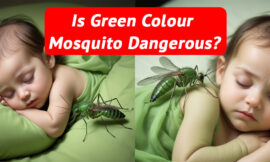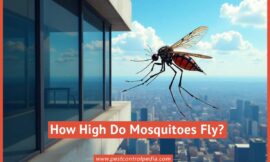When you think of summer vacations, images of buzzing mosquitoes often come to mind. However, there’s one destination that stands out for its surprising absence of these pesky insects. Have you ever wondered if Iceland truly is a haven free from mosquitoes?
This intriguing question has sparked curiosity among travelers and nature enthusiasts alike. While many countries battle swarms of mosquitoes, Iceland seems to have dodged this common nuisance. But what makes this island nation so unique?
In this article, we will explore the fascinating reasons behind the claim: Does Iceland have mosquitoes? From climate conditions to ecological factors, we’ll uncover the secrets of this remarkable environment.
Join us as we delve into the enchanting world of Iceland and discover why it remains a blissful escape from the buzz of mosquitoes.
Table of Contents
ToggleThe Mosquito Landscape in Iceland
Current Status
Iceland is often touted as one of the few places on Earth that is largely free from mosquitoes. While there have been rare sightings, the overall population remains almost nonexistent. This unique status raises questions about its environmental conditions.
Interestingly, the only documented mosquito in Iceland was captured in the 1980s. This solitary instance has led to a widespread belief that these insects cannot survive in the country’s climate.
Comparison with Neighboring Countries
To understand why Iceland is so different, it's helpful to look at its neighboring countries. In contrast to Iceland, places like Greenland and parts of Scandinavia experience significant mosquito populations during warmer months.
- Greenland: Known for its vast landscapes, it still hosts various mosquito species.
- Norway: Summer brings a surge of mosquitoes, especially in wetlands.
- United Kingdom: Mosquitoes are common, particularly in rural areas.
The stark difference in mosquito presence can be attributed to various geographical and climatic factors that make Iceland a less hospitable environment for these insects.
Why Are There No Mosquitoes in Iceland?
Climate Conditions
The climate in Iceland plays a significant role in keeping mosquitoes at bay. With its unpredictable weather patterns, the country experiences frequent changes that can be detrimental to mosquito survival.
During the summer months, temperatures may rise, but they rarely reach the consistent warmth that mosquitoes thrive in. Additionally, the long winters create a challenging environment for any potential breeding.
Water and Soil Composition
Another intriguing factor is the composition of Iceland's water and soil. The unique geological features of the country contribute to a landscape that is not conducive to mosquito reproduction.
- Water Quality: The cold, glacial waters do not provide ideal conditions for mosquito larvae.
- Soil Type: The volcanic soil lacks the nutrients that support mosquito breeding habitats.
This combination of elements creates an environment where mosquitoes struggle to establish themselves, making Iceland an unlikely home for these insects.
Ecological Factors
Iceland's ecological landscape further discourages mosquito populations. The absence of suitable breeding grounds, such as shallow ponds or stagnant water, limits their ability to reproduce.
Moreover, the presence of other insects, like midges, fills the ecological niche without allowing mosquitoes to gain a foothold. This balance keeps the insect population in check and contributes to Iceland's unique ecosystem.
The Unique Ecosystem of Iceland
Insect Diversity
Iceland may be known for its lack of mosquitoes, but it is home to a variety of other insects. The unique climate and geography have shaped a distinct ecosystem that supports different species.
While mosquitoes are absent, you can find midges and other small insects thriving in the environment. These insects play essential roles in the food chain and contribute to the overall biodiversity of the region.
Impact on Human Life
The absence of mosquitoes significantly impacts outdoor activities and tourism in Iceland. Visitors can explore the stunning landscapes without the annoyance of buzzing insects.
- Outdoor Adventures: Hiking, camping, and fishing become more enjoyable without worrying about bites.
- Tourism Appeal: Iceland's unique status attracts travelers seeking a different experience compared to other destinations.
This mosquito-free environment enhances the allure of Iceland as a travel destination, making it a peaceful retreat for nature lovers.
Future Considerations
Climate Change Implications
As the world grapples with the effects of climate change, it's natural to wonder if Iceland's mosquito-free status will remain intact. Experts have raised concerns about the potential impact of rising temperatures on the country's ecosystem.
While Iceland's climate has historically been unfavorable for mosquitoes, a significant shift in weather patterns could create more hospitable conditions. This raises questions about the future of Iceland's unique environment and the measures that may be necessary to preserve its delicate balance.
Scientific Perspectives
Scientists have studied the factors that contribute to Iceland's lack of mosquitoes and have shared their insights on the potential for change. Many believe that a substantial increase in temperature would be required to support a stable mosquito population.
- Warming Trends: Gradual warming may not be enough to attract mosquitoes, as the climate would still be less favorable compared to other regions.
- Extreme Scenarios: Drastic changes, such as a sudden spike in temperatures or a shift in weather patterns, could potentially create conditions suitable for mosquito survival.
While the future remains uncertain, it's clear that Iceland's unique ecosystem is a delicate balance that requires ongoing monitoring and protection.
Frequently Asked Questions - FAQS
Q. Are there mosquitoes in Reykjavik, Iceland?
A. No, Reykjavik, the capital of Iceland, is mosquito-free. The city's unique climate and environmental conditions make it an unfavorable habitat for mosquitoes to thrive.
Q. Do mosquitoes exist in the Icelandic countryside?
A. The Icelandic countryside, like the rest of the country, is largely free from mosquitoes. The harsh weather and lack of suitable breeding grounds contribute to the absence of these insects in rural areas.
Q. Is it safe from mosquitoes in the Icelandic highlands?
A. Yes, the Icelandic highlands, known for their rugged terrain and extreme weather conditions, are also mosquito-free. The harsh environment is not conducive for mosquito survival and reproduction.
Q. Does Iceland have more mosquitoes than Greenland?
A. No, Iceland has significantly fewer mosquitoes compared to Greenland. While Iceland is virtually mosquito-free, Greenland has two known species of mosquitoes that are present in certain regions.
Q. Are there more mosquitoes in Iceland or Norway?
A. Norway has a larger mosquito population compared to Iceland. While Iceland is almost entirely mosquito-free, Norway experiences significant mosquito activity during the warmer months, particularly in wetland areas.
Q. How does Iceland's mosquito population compare to other Nordic countries?
A. Iceland has a significantly lower mosquito population compared to other Nordic countries like Norway, Sweden, and Denmark. These countries have established mosquito populations, while Iceland remains largely free from these insects.
Q. Are there mosquitoes in Iceland during the summer months?
A. No, even during the summer months, Iceland remains mosquito-free. The country's climate, with its unpredictable weather patterns and frequent temperature fluctuations, prevents mosquitoes from establishing a presence during the warmer seasons.
Q. Do mosquitoes exist in Iceland during the winter?
A. No, mosquitoes are not present in Iceland during the winter months. The country's harsh winters, with prolonged periods of freezing temperatures, make it impossible for mosquitoes to survive and reproduce.
Q. Is the mosquito season shorter in Iceland compared to other countries?
A. Iceland does not have a mosquito season, as the country is virtually mosquito-free year-round. In contrast, many other countries experience a distinct mosquito season during the warmer months, which can last several months.
Q. Why are there no mosquitoes in Iceland?
A. The primary reasons for the absence of mosquitoes in Iceland are the country's unique climate, with frequent weather changes and freezing temperatures, the lack of suitable breeding grounds, and the chemical composition of the water and soil, which is not conducive for mosquito survival.
Q. What are the scientific reasons behind Iceland's lack of mosquitoes?
A. Scientific research suggests that Iceland's oceanic climate, with its unpredictable weather patterns and multiple freeze-thaw cycles throughout the year, disrupts the life cycle of mosquitoes, making it impossible for them to establish a stable population.
Q. Is there a specific climate factor that prevents mosquitoes from thriving in Iceland?
A. Yes, Iceland's frequent and sudden weather changes, with temperatures fluctuating between warm and cold, are a significant factor in preventing mosquitoes from thriving. The lack of consistent warm weather makes it challenging for mosquitoes to complete their life cycle.
Q. Is Iceland completely mosquito-free?
A. While Iceland is considered virtually mosquito-free, there have been rare instances of mosquitoes being spotted in the country. In one case, a single mosquito was captured on a plane arriving from Greenland and is now preserved at the Icelandic Institute of Natural History.
Q. What are the benefits of having no mosquitoes in Iceland?
A. The absence of mosquitoes in Iceland provides several benefits, including a more enjoyable outdoor experience for residents and tourists, reduced risk of mosquito-borne diseases, and a unique ecosystem that is not disrupted by the presence of these insects.
Q. Are there any other insects that are common in Iceland?
A. Yes, while Iceland lacks mosquitoes, it is home to other insects, such as midges and black flies. Midges, in particular, are a common sight in certain areas like Lake Myvatn, which translates to "Lake of Midges" in Icelandic.
Q. Has Iceland ever had mosquitoes in the past?
A. There is no evidence of Iceland having a significant mosquito population in the past. The country's unique climate and environmental conditions have likely prevented mosquitoes from establishing a presence for centuries.
Q. Could climate change affect Iceland's mosquito-free status?
A. While Iceland currently remains mosquito-free, climate change and global warming could potentially alter the country's climate in the future, making it more hospitable for mosquitoes. However, it would require a significant shift in weather patterns for this to occur.
Conclusion
In summary, the question of whether Iceland has mosquitoes reveals much about the country's unique environmental conditions. From its challenging climate to the absence of suitable breeding grounds, various factors contribute to its reputation as a mosquito-free haven.
The distinct ecosystem of Iceland not only affects insect populations but also enhances the experience for visitors. Outdoor activities can be enjoyed without the nuisance of buzzing mosquitoes, making it an attractive destination for nature lovers.
As we look to the future, ongoing monitoring of climate trends will be essential to understand how changes may impact this delicate balance. For now, Iceland remains a remarkable example of how geography and climate can shape an ecosystem.



